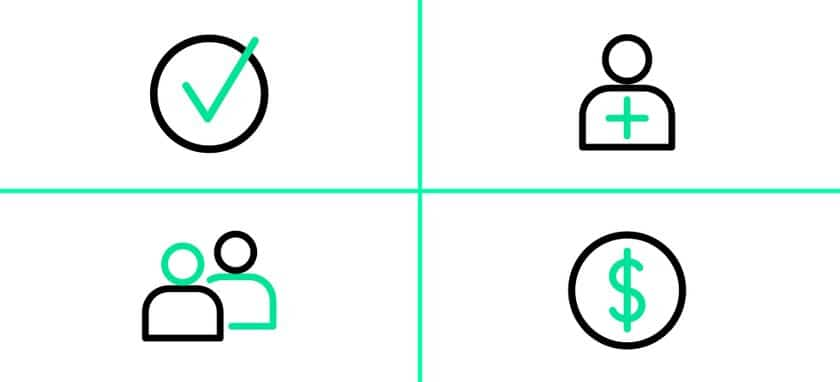Our insights management survey revealed some contradictions about how medical affairs teams approach solutions to their insights management challenges.
Responses showed that teams use various tools and technology to generate and analyze insights. These range from data visualization and analytics software to file-sharing repositories and spreadsheets; some respondents use two or more tools.
A flood of information, a trickle of insights
However, further questions revealed that despite the investment in these solutions, medical affairs teams still have a big problem: 79% use less than half the data they collect to generate insights. And while an overwhelming amount of data is a critical challenge for medical affairs leaders, the systems they use to manage it aren’t helping.
The majority – 76% – of medical affairs leaders reported that the way data and insights are stored and shared in their organization has created data silos, preventing them from generating or sharing insights efficiently, and 46% said they consider the task of sharing medical affairs insights in their organization “a challenge.”
Navigating the need for a solution
Overall, medical affairs teams understand the need for a more unified, end-to-end insights management process in their organizations. However, they cite significant impediments to creating and implementing such a process:
- 45% say they can’t accommodate a big upfront investment in funding both new technology and resources
- 22% say they have legacy systems that would be difficult to replace
- 19% say they’ve recently invested in new technology and can’t switch or change
Despite this reluctance, nearly half (48%) of the medical affairs leaders we surveyed acknowledged that better technology would help their team be more agile about insights to inform their strategy.
Clearly, medical affairs teams understand that technology can be effective in managing large amounts of data and generating insights. They also know that technology is the best way to store and share information across their organization. So where’s the disconnect?
Finding tailored technology
For many teams, the issue lies in using technology not explicitly tailored to the life science industry and the complex workflows of the drug development process. Medical affairs requires a platform that’s specific to insights management and that ideally works alongside other tools like CRMs.
An insights management platform that’s designed to grow with your team’s needs – accommodating the need to continue using legacy systems until contract expiry or deprecation – could give your organization a clear path to the unified, end-to-end system you need to eliminate internal silos and use more of the data you collect to generate actionable insights.
Our research discovered that some medical affairs organizations already use a single, central way of managing insights. Of those, 85% say that using a single system helps generate and share insights more efficiently. These innovators are getting ahead of the curve to manage ever-increasing amounts of data and numbers of channels, and they’ll have a considerable competitive and organizational advantage over those who haven’t.
Where should medical affairs teams go from here? Get a breakdown of crucial strategy and implementation steps to build a better insights management strategy in our white paper co-presented with MAPS.





